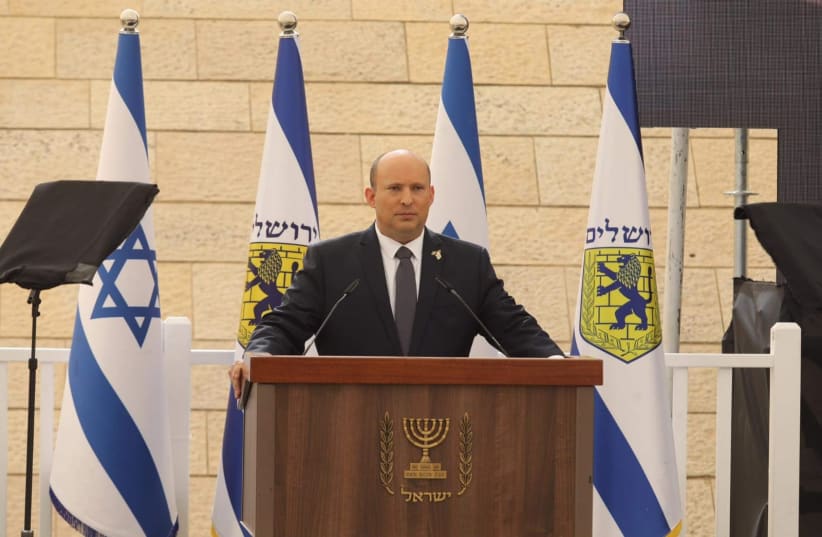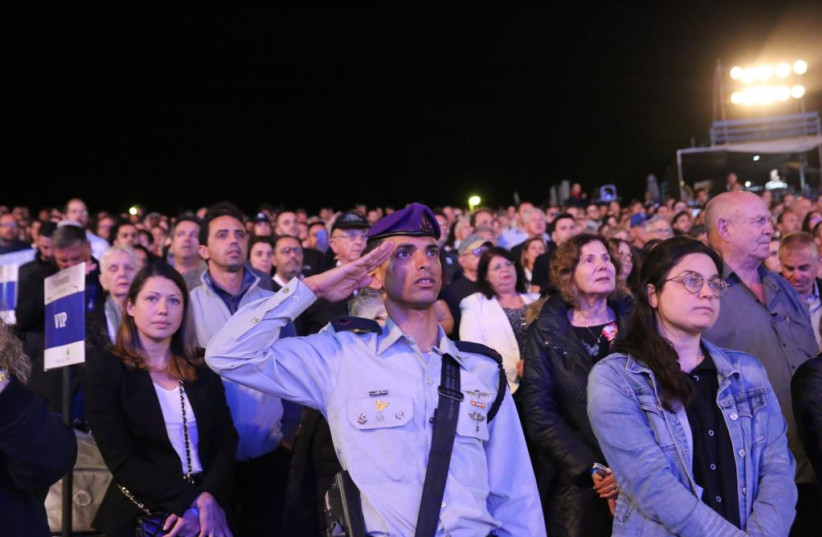It’s the stuff of which ideals are shattered.
On Wednesday, Remembrance Day, a day in this country infused with sanctity and even holiness, bereaved relatives heckled Prime Minister Naftali Bennett when he spoke at a ceremony commemorating those killed in terrorist attacks.
Not all the families heckled, nor even most, just a small minority. They yelled “traitor” and “swindler” at the prime minister, who less than 12 hours earlier had opened the country’s Remembrance Day ceremonies with a moving speech stressing the unity of the soldiers and the danger of sectarianism.
What is the ideal that this heckling shattered?
That sacrifice unites this country, that the ultimate sacrifice unites ultimately, and that Israel always rallies together in times of pain.
The hecklers showed that is not always true.
With their hate-laced words and their fingers angrily piercing the air, the hecklers punched holes in that ideal. Their actions belie what the prime minister, as well as the president and chief of staff, had been saying for the previous 12 hours: that all the bitter disputes and divisions are laid to rest in the cemetery; that remembering the fallen is the great unifier.
And it is, for the most part. But not completely. That ideal of complete unity is unattainable, one that lives only in the imagination – even on Remembrance Day.
Some may despair that the hecklers showed that the idea that the Jewish state comes together at times like these is an idealized image of ourselves. That is how we like to see ourselves, the image we have of ourselves.
Some may lose heart at the realization that we are unable to live up to that idealized version of who we are; that the image is not an accurate reflection of reality.
There are those who, as a result of this, may lose faith in the country – for if it cannot rally together even on Remembrance Day; if it cannot put aside the harsh divisions for just one day a year, even on that one day when hundreds of thousands of people are visiting military cemeteries to pay their respects to the fallen, then when will it ever be able to do so?
But there is no reason to despair.
Those who do despair are from the all-or-nothing school of thought. Things are either black or white, day or night. Israel is either perfect, or it is doomed.
But it is neither.
The unity that Bennett spoke about in his Remembrance Day speech – that those he knew as a soldier who fell were neither Ashkenazi nor Sephardi, religious or secular, but rather brothers all – does exist. But so do the divisions, so does the factionalism.
It can’t be hidden. Not even on Remembrance Day.
But neither can the unity be hidden.
And just as the divisions were evident in the heckling, the unity was evident in what came in the night and day afterward – in the torch-lighting ceremony a few hours later at Mount Herzl, in the countless Independence Day ceremonies held in townships and cities and moshavim and settlements and kibbutzim from Metulla to Eilat, in the Air Force fly-over, in the Bible Quiz, even in the Israel Prize award ceremony, a prize always marred by political controversies.
The beauty of Independence Day in this country is that on one lazy day millions of people reflect on what has been accomplished; some do it voluntarily in synagogues when reciting the Hallel prayers; some when sitting around a barbecue with family and friends; and others who are forced to think about it because of the endless speeches at ceremonies they can’t avoid, and because throughout the day the radio and television stations broadcast upbeat fare that focuses not on the country’s shortcomings but rather on its achievements.
What all that does, in the soaring words of Abraham Lincoln, is touch “mystic chords of memory,” and those mystic chords unite us toward the better angels of our nature.
Both unity and division exist here – Israel contains both – but they do not exist in equal measures. The challenge as Israel embarks on its 75th year is to ensure that they never do.

